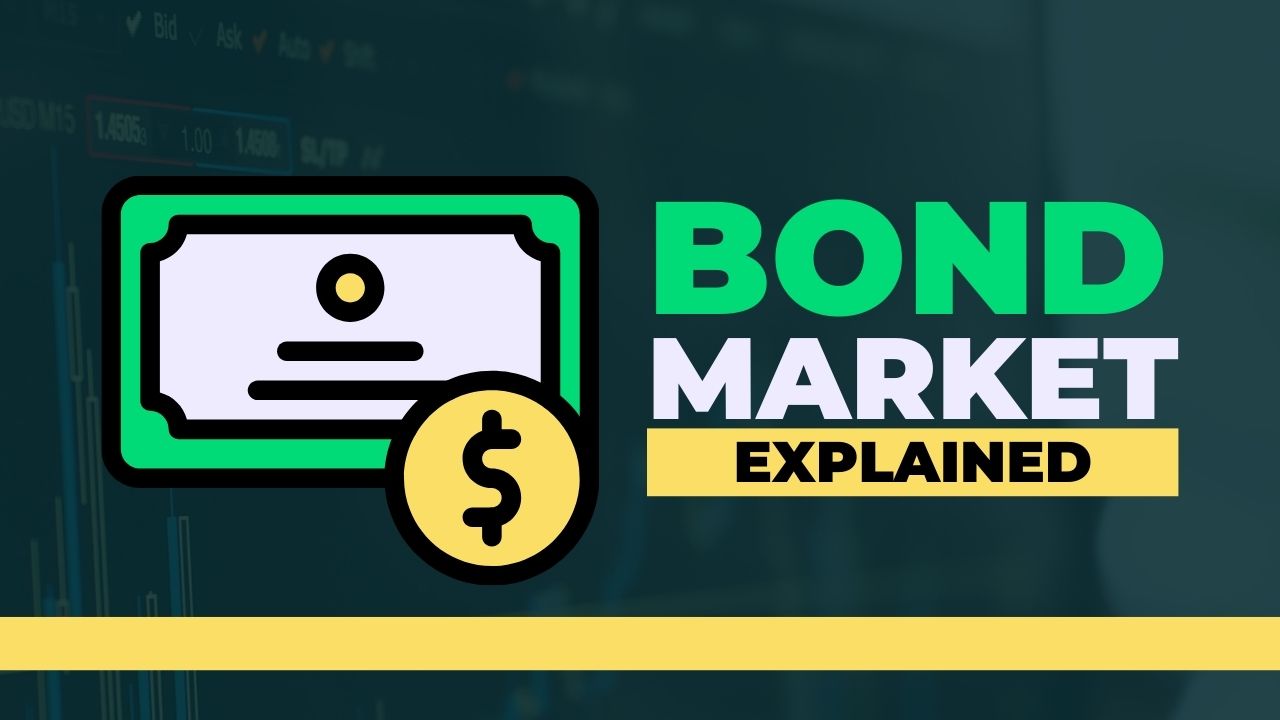The debt market, also known as the bond market or credit market, is an essential part of the financial world. It’s where different types debt instruments are bought and sold. In simple terms, the debt market is where people, companies, and governments borrow money by issuing bonds or similar securities. Investors lend money by purchasing these bonds. This market plays an important role in the economy, helping governments fund projects, companies expand, and investors earn steady returns.
Table of Contents
What are Debt Instruments?
Debt instruments are financial instruments that represent a loan. When an investor buys a debt instrument, they are essentially lending money to the issuer, whether it’s a government, a company, or another organization. The issuer promises to pay back the borrowed amount, known as the principal, along with interest at a specified time in the future.
Unlike stocks, where investors become partial owners of a company, debt instruments do not grant ownership. Instead, they provide a fixed income in the form of interest payments. This makes debt instruments a more predictable investment compared to stocks, which can fluctuate widely in value.
Types of Debt Instruments
There are several types of debt instruments, each with its own characteristics and uses. Here are some of the most common types:
- Government Securities (G-secs): Government Securities, or G-Secs, are financial instruments issued by the Reserve Bank of India on behalf of the Government of India. G-secs are often used by governments to fund infrastructure projects, public services, and other essential activities. They come with different maturity periods, ranging from 1 year to 30 years. These securities pay a fixed interest rate every six months. For shorter-term investments, the Reserve Bank issues Treasury Bills (T-Bills), with maturities of 91, 182, or 364 days. G-Secs are considered very safe investments with no risk of default.
- Corporate Bonds: Corporate Bonds are issued by companies or public sector undertakings and can last up to 15 years, with some even being perpetual. Compared to government bonds, corporate bonds typically offer higher returns to compensate for the higher risk of default. The risk associated with corporate bonds depends on the financial health of the issuing company, market conditions, and the industry in which the company operates. As a result, corporate bonds usually provide higher yields than government bonds.
- Certificates of Deposit (CDs): Certificates of Deposit (CDs) are short-term investment products offered by banks and financial institutions. Banks offer CDs with maturities from 7 days to 1 year, while financial institutions can offer them for up to 3 years. CDs usually provide higher returns than regular savings accounts. They are issued in amounts starting from Rs. 1 lakh. CDs are considered very safe investments.
- Commercial Papers: Commercial papers are short-term loans issued by companies to meet their immediate financial needs. They have maturities from 7 days to 1 year and are sold at a discount. The minimum investment amount is Rs. 5 lakh. Because they are short-term, commercial papers usually offer lower interest rates than long-term bonds, but they are still a valuable tool for companies needing quick financing. However, they generally offer higher returns than fixed deposits and CDs.
How Does the Debt Market Work?
The debt market functions through the issuance and trading of debt instruments. Here’s a simple breakdown of how it works:
- Issuance: When a government, company, or other entity needs to raise money, they issue a debt instrument such as a bond. This bond is a promise to repay the loan with interest over a specified period.
- Purchase: Investors buy these debt instruments, effectively lending money to the issuer. The price of the bond is usually based on the interest rate, the creditworthiness of the issuer, and the bond’s maturity date (the date when the principal amount will be repaid).
- Interest Payments: Over the life of the bond, the issuer pays interest to the investor, usually on a regular basis, such as quarterly or annually. This interest is the investor’s return on their investment.
- Maturity: When the bond reaches its maturity date, the issuer repays the principal amount to the investor, completing the transaction.
The debt market allows for the buying and selling of these debt instruments in the secondary market as well. Investors can trade bonds before they mature, potentially making a profit if the bond’s price has increased.
Also Read – How Do Federal Reserve Interest Rates Impact Stock Markets Around the World?
How Is the Bond Market Better Than the Equity Market?
The bond market has several advantages over the equity (stock) market, particularly for investors who prioritize safety and predictability. Here are some key reasons why the bond market might be considered better than the equity market:
- Safety: Bonds are generally safer than stocks. While stocks can offer higher returns, they come with higher risks. The value of stocks can fluctuate widely based on market conditions, company performance, and investor sentiment. In contrast, bonds provide a fixed income through regular interest payments and are less likely to lose value.
- Fixed Returns: Bonds offer predictable returns. When you buy a bond, you know exactly how much interest you will earn and when you will receive it. This makes bonds an attractive option for investors who need a reliable income stream, such as retirees.
- Priority in Payment: If a company goes bankrupt, bondholders are paid before shareholders. This means that in the event of financial trouble, investors in bonds are more likely to get their money back compared to investors in stocks.
- Lower Volatility: The bond market is generally less volatile than the stock market. This means that bond prices tend to fluctuate less than stock prices, providing a more stable investment environment.
Conclusion
The debt market is a vital part of the financial system that offers a way for governments, companies, and other entities to raise money. Debt instruments like bonds, debentures, commercial papers, and government securities provide investors with a relatively safe and predictable way to earn returns. While the bond market may not offer the same potential for high returns as the stock market, it provides safety, fixed income, and priority in payments, making it an essential part of a well-rounded investment strategy. For beginners and conservative investors, understanding the debt market is a key step toward making informed investment decisions.
Also Read – Inflation and CPI Explained – What’s the Effect on the Stock Market?

